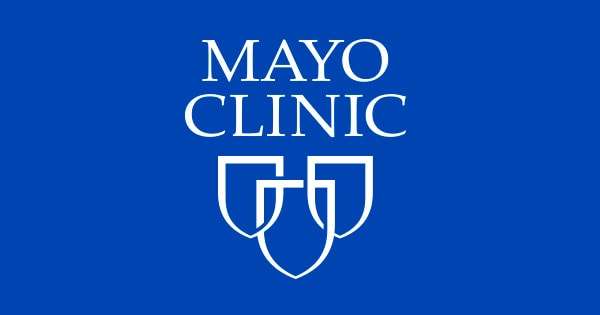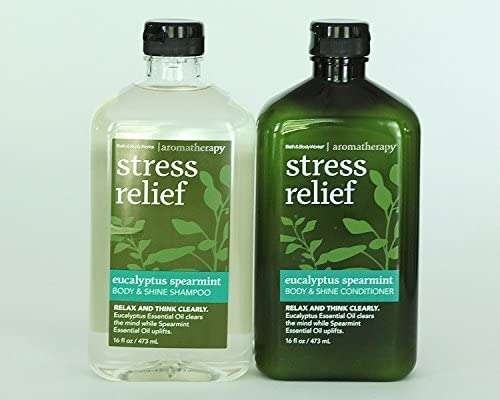Mayo Clinic offers appointments in Arizona, Florida and Minnesota and at Mayo Clinic Health System locations.
Tension-type headaches: Self-care measures for relief
Headaches can interfere with daily life. But healthy lifestyle choices can help you head off the pain. Start with diet, exercise and relaxation.
By Mayo Clinic Staff
Nearly everyone knows the pain of tension-type headaches. But the world doesn’t stop when the pain strikes. Medicines may relieve the pain. But simply taking good care of yourself may help prevent a headache.
Make healthy lifestyle choices
A healthy lifestyle can promote good overall health. It also may help prevent all types of headaches, including tension-type headaches. Here are the basics:
- Eat nutritious foods on a regular schedule. Don’t skip meals, especially breakfast. Drink plenty of water each day.
- Exercise regularly. Exercise releases chemicals in the body that block pain signals to the brain. Talk with your health care provider about exercise and choose activities you enjoy. They might include walking, swimming or cycling. But be sure to start slowly. Exercising too intensely can cause some types of headaches.
- Get enough sleep. Wake up and go to bed at the same time every day — even on weekends. Relax before you go to bed. If you don’t fall asleep within 15 minutes, get up and read or do something soothing until you’re drowsy. Avoid medicines that contains caffeine or other stimulants that can affect sleep. This can include some headache medicines. Also keep in mind that sleep apnea can cause tension-type headaches, especially if you have headaches in the mornings. Sleep apnea is a sleep disorder in which breathing stops and starts throughout the night. Seeing a health care provider and getting treatment for sleep apnea can ease its symptoms.
- Avoid large amounts of caffeine. Caffeine may help curb headaches. But heavy daily caffeine use can lead to headaches. Generally, getting more than 400 milligrams of caffeine a day — more than about four cups of coffee — can cause headaches and irritability. Regular caffeine use also increases the risk of headaches. Even quitting caffeine can cause headaches. This may happen whether you quit suddenly or cut back gradually.
- Be mindful of common pain medicines. You can buy pain medicine at the store. But using this medicine more than nine days a month can make headaches harder to treat. If this is the case, see a health care provider.
- Quit smoking. The nicotine in cigarette smoke reduces blood flow to the brain. It also triggers a reaction in the nerves at the back of the throat. These changes can lead to a headache.
Keep stress under control
Stress and tension-type headaches often go hand in hand. To reduce stress, try these simple tips:
- Simplify your life. Don’t look for ways to squeeze more activities or chores into the day. Instead, try to do less.
- Take a break. If you feel overwhelmed, a few slow stretches or a quick walk may help lower your stress level.
- Breathe. Take several deep breaths and count to 10 to help reduce feelings of stress.
- Adjust your attitude. Think positive thoughts. Don’t think that something is impossible. Tell yourself that you are up to the challenge.
- Let go. Don’t worry about things you can’t control.
Ease muscle tension
Tense muscles can trigger tension-type headaches. Apply heat to relieve tense neck and shoulder muscles. Use a heating pad set on low, a hot water bottle, a hot shower or bath, a warm compress, or a hot towel. Or apply ice or a cool washcloth to the forehead.
Massage also can relieve muscle tension — and sometimes headache pain. Gently massage your temples, scalp, neck and shoulders with your fingertips, or gently stretch your neck.
Relax
Take time to unwind every day. Try this deep-breathing exercise:
- Lie down on your back. Or sit comfortably with your feet flat on the floor and your hands in your lap.
- Imagine yourself in a peaceful place such as a beach or quiet forest. Keep this scene in your mind.
- Breathe in and out slowly and deeply for at least 10 minutes.
- When you’re done, sit quietly for a minute or two.
Try to practice these breathing exercises or another form of relaxation every day.
Keep a headache diary
A diary may help you learn what triggers your tension-type headaches. Note when your headaches start and your activities. Also record how long the headaches last and anything that provides relief. The diary may help you spot patterns in your daily habits that may lead to headaches.
Look for improvements in your headaches as you make additional healthy lifestyle changes.
- Headache: Hope through research. National Institute of Neurological Disorders and Stroke. https://www.ninds.nih.gov/Disorders/Patient-Caregiver-Education/Hope-Through-Research/Headache-Hope-Through-Research. Accessed Sept. 15, 2022.
- Cutrer FM, et al. Pathophysiology, clinical manifestations, and diagnosis of migraine in adults. https://www.uptodate.com/contents/search. Accessed Aug. 13, 2020.
- Your guide to healthy sleep. National Heart, Lung, and Blood Institute. https://www.nhlbi.nih.gov/health-topics/all-publications-and-resources/your-guide-healthy-sleep. Accessed Aug. 13, 2020.
- LaRowe LR, et al. Pain, nicotine and tobacco smoking: Current state of the science. Pain. 2020; doi:10.1097/j.pain.0000000000001874.
- 3 tips to manage stress. American Heart Association. https://healthyforgood.heart.org/be-well/articles/3-tips-to-manage-stress. Accessed Sept. 15, 2022.
- Swanson JW (expert opinion). Mayo Clinic, Rochester, Minn. July 23, 2018.
- Bordeaux B, et al. Benefits and risks of caffeine and caffeinated beverages. https://www.uptodate.com/contents/search. Accessed Aug. 13, 2020.
- Kissoon NR (expert opinion). Mayo Clinic. Sept. 20, 2022.
- Sun-Edelstein C, et al. The evolution of medication overuse headache: History, pathophysiology and clinical update. CNS Drugs. 2021; doi:10.1007/s40263-021-00818-9.
See more In-depth तनाव और चिंता ज्यादातर लोगों के लिए सामान्य अनुभव है। खासकर उस वक्त जब दुनिया भर में कोविड ने अपना कहर बरपाया हो। महामारी के दौर में कई लोग पैनिक अटैक की शिकायत करते हैं। हालांकि ऐसी बहुत सी चीजें हैं जिन्हें नियमित रूप से फॉलो करने पर इस तरह की समस्याओं से छुटकारा पा सकते हैं। इनमें व्यायाम सबसे महत्वपूर्ण है, जिसके जरिए आप टेंशन और तनाव से निपट सकते हैं। व्यायाम के माध्यम से अपने शरीर पर शारीरिक तनाव डालने से मानसिक तनाव दूर हो सकता है। आइए जानते हैं तनाव और चिंता दूर करने के स्ट्रेस बस्टर।
पर्याप्त नींद

रात में अगर आप एक अच्छी नींद नहीं लेते हैं तो दिनभर थका-हारा मेहसूस करते हैं। अपर्याप्त नींद आपके मूड, मेंटल अवेयरनेस, एनर्जी लेवल और फिजिकल हेल्थ पर नकारात्मक प्रभाव डालती है। इसलिए अगर आप स्ट्रेस से छुटकारा पाना चाहते हैं तो पर्याप्त नींद जरूर लें।
रिलैक्स करने की तकनीक सीखें

मेडिटेशन, प्रोग्रेसिव मसल्स रिलैक्सेशन, गाइडेड इमेजरी, ब्रीदिंग एक्सरसाइज यानी गहरी सांस लेना जैसे व्यायाम को अपनी दिनचर्या में शामिल करें। योग एक पॉवरफुल रिलैक्सेशन टेकनीक है और स्ट्रेस-बस्टर है।
सोशल नेटवर्क को मजबूत बनाएं

अपने स्कूल फ्रेंड्स से लेकर दफ्तर के साथियों के साथ संपर्क में रहें। इसके अतिरिक्त किसी संगठन में शामिल होकर या किसी तरह से सहायता कर अपना सोशल नेटवर्क बनाएं जिससे जरूरत पर लोग आपका साथ दें और आपकी समस्या सुनें।
वक्त मिलने पर अपनी स्किल को निखारें

अगर आपके व्यक्तित्व में कुछ स्किल है तो खाली समय मिलने पर उसे निखारने की कोशिश करें। कुछ लोग काफी क्रिएटिव होते हैं लेकिन तमाम दफा वे अपना पूरा वक्त टेंशन में जाया कर देते है, बेहतर होगा वे खुद को अपने पसंदीदा काम में बिजी रखें। जितना अधिक कुशलता से आप अपने काम और परिवार की मांगों को जोड़ सकते हैं, आपके तनाव का स्तर उतना ही कम होगा।
खुद को पोषित करें

अपने आपको हर तरीके से टाइम दें या कहें खुद को पोषित करें फिर चाहे वो खान-पान हो या फिर आवागमन हो। उदाहरण के लिए धीरे-धीरे खाएं और भोजन का पूरा आनंद के साथ स्वाद लें। अपनी संवेदनाओं पर ध्यान केंद्रित करें। बगीचे में वॉक करें या फिर हल्की नींद लें। वॉक करते वक्त अपने पसंदीदा गाने सुनें।
स्ट्रेस लेकर हालात को न बिगाड़े

जब भी आप किसी कारणवश तनाव में हैं तो उस बारे में शांति से सोचें और समाधान का रास्ता खोजें। तनावपूर्ण स्थितियों को बिगड़ने न दें। घर के सदस्यों को लेकर कोई टेंशन है तो पारिवारिक समस्या-समाधान सेशन को बुलाएं। बातचीत से ही हल निकलेना न कि टेंशन लेने से।
जरूरत पढ़ने पर मदद मांगे

कई दफा दूसरों के साथ अपनी समस्या को शेयर करने से समाधान मिल जाता है। इसलिए अपने जीवनसाथी, करीबी दोस्तों और पड़ोसियों से मदद मांगने से न डरें। अगर तनाव और चिंता बनी रहती है, तो अपने डॉक्टर से बात करें।
Mayo Clinic offers appointments in Arizona, Florida and Minnesota and at Mayo Clinic Health System locations.
Headaches: Reduce stress to prevent the pain
Stress can make your head hurt — and a headache can really stress you out. To reduce the pain, rein in the stress.
By Mayo Clinic Staff
In the flurry of a frantic morning, you may find that your head starts pounding. It’s not a coincidence — headaches are more likely to occur when you’re stressed.
Stress is a common trigger of tension-type headaches and migraine. It can also trigger other types of headaches or make them worse. Stress is a particularly common headache trigger in children and young adults.
Taking simple steps to manage your stress can help prevent some types of headaches.
The daily grind
Major changes in your life can cause stress. But that’s not usually the type of stress that triggers headaches.
Instead, it’s often the everyday irritants — searching for lost papers, sitting in traffic, a big project at work — that may trigger headaches in some people.
Your body may respond to these daily stressors by tensing your muscles, grinding your teeth or stiffening your shoulders. These involuntary reactions may make your headaches worse.
Stop the cycle
You can’t avoid daily stress. But you can keep stress under control — and help prevent headaches.
Consider relaxation techniques
Relaxation techniques can reduce symptoms of stress, including headaches. Making time for pleasurable activities, such as listening to music, dancing, playing a sport, reading a book or playing with your pet can help.
In addition, set aside time, even if it’s just 10 minutes a day, to practice relaxation. Try one of these relaxing activities:
- Meditation
- Yoga
- Tai chi
- Deep breathing
Also, to reduce stress daily, consider these tips:
- Simplify your schedule. Rather than looking for ways to squeeze more activities or chores into the day, trim your daily to-do list. Ask yourself what really needs to be done, what can wait and what you need not do. It’s OK to say no.
- Exercise regularly. Exercise is a proven way to prevent — and sometimes treat — headaches. Exercise also provides a break from the stress of daily life. Be careful to warm up slowly. Sudden, intense exercise can cause headaches.
- Eat smart. A diet rich in fruits, vegetables and whole grains can give you more energy and help keep stress under control.
- Get adequate sleep. Stress can make it hard to sleep, but not getting enough sleep can make it harder to cope with stress. Lack of sleep stresses your body and may trigger the release of stress hormones, such as adrenaline and cortisol.
- Seek support. Talking things out with family or friends or allowing them to help you through a difficult time can help you manage stress. Talking to a therapist might also help.
- Manage your time wisely. Update your to-do list every day — both at work and at home. Delegate what you can and break large projects into manageable steps. Tackle the rest, one task at a time.
- Be prepared. Organize your day. Anticipate challenges. Try to keep your plan flexible, in case a headache strikes and you need to change course.
- Let go. Try not to worry about things you can’t control.
- Adjust your attitude. Encourage yourself with positive self-talk. Putting a positive spin on negative thoughts can help you work through stressful situations. If you need help with this process, consider cognitive behavioral therapy.
- Take a break. If you feel overwhelmed, take some time to clear your mind. A few slow stretches or a brisk walk may renew your energy for the task at hand. Or take a mental vacation by imagining yourself in a calm, relaxing place.
- Laugh. Humor is a great way to relieve stress. Laughter releases endorphins, natural substances that help you feel better and maintain a positive attitude. Try watching funny movies or reading a funny book.
- Change the pace. Break away from your routine and try something new. A vacation or weekend getaway may help you develop a new outlook.
- Change your habits. If you smoke, quit. Cut down on caffeine and, if you drink alcohol, do so in moderation. For healthy adults, that means up to one drink a day for women and up to two drinks a day for men.
Recognize when it’s more than stress
Most headaches are nothing to worry about. But if headaches get in the way of your daily activities, work or personal life, ask your doctor for help. You may be stressed, but perhaps there’s something else going on as well.
Seek emergency care if your headache:
- Is sudden and severe
- Accompanies a fever, stiff neck, rash, confusion, seizure, double vision, weakness, numbness or difficulty speaking
- Follows a head injury, fall or bump
- Gets worse despite rest and taking pain medication you can buy without a prescription
These symptoms may indicate a medical condition that needs treatment right away.
There is a problem with information submitted for this request. Review/update the information highlighted below and resubmit the form.
From Mayo Clinic to your inbox
Sign up for free, and stay up to date on research advancements, health tips and current health topics, like COVID-19, plus expertise on managing health.
ErrorEmail field is required
ErrorInclude a valid email address
To provide you with the most relevant and helpful information, and understand which information is beneficial, we may combine your email and website usage information with other information we have about you. If you are a Mayo Clinic patient, this could include protected health information. If we combine this information with your protected health information, we will treat all of that information as protected health information and will only use or disclose that information as set forth in our notice of privacy practices. You may opt-out of email communications at any time by clicking on the unsubscribe link in the e-mail.
Thank you for subscribing!
You’ll soon start receiving the latest Mayo Clinic health information you requested in your inbox.
Sorry something went wrong with your subscription
Please, try again in a couple of minutes
- Headache: Hope through research. National Institute of Neurological Disorders and Stroke. https://www.ninds.nih.gov/Disorders/Patient-Caregiver-Education/Hope-Through-Research/Headache-Hope-Through-Research. Accessed July 12, 2022.
- Stress tip sheet. American Psychological Association. http://www.apa.org/news/press/releases/2007/10/stress-tips. Accessed July 12, 2022.
- Your guide to healthy sleep. National Heart, Lung, and Blood Institute. https://www.nhlbi.nih.gov/health-topics/all-publications-and-resources/your-guide-healthy-sleep. Accessed July 12, 2022.
- Tension-type headache in adults: Pathophysiology, clinical features, and diagnosis. https://www.uptodate.com/contents/search. Accessed July 12, 2022.
- Fight stress with healthy habits. American Heart Association. http://www.heart.org/HEARTORG/HealthyLiving/StressManagement/FightStressWithHealthyHabits/Fight-Stress-with-Healthy-Habits_UCM_307992_Article.jsp. Accessed July 12, 2022.
- Healthy ways to handle life’s stressors. American Psychological Association. https://www.apa.org/topics/stress-tips. Accessed July 12, 2022.
- Three tips to manage stress. American Heart Association. https://healthyforgood.heart.org/be-well/articles/3-tips-to-manage-stress. Accessed July 12, 2022.
- Taylor F. Tension-type headache in adults: Preventive treatment. https://www.uptodate.com/contents/search. Accessed July 12, 2022.
- Bougea A, et al. Stress management for headaches in children and adolescents: A review and practical recommendations for health promotion programs and well-being. Journal of Child Health Care. 2018; doi:10.1177/1367493517738123.
See more In-depth




